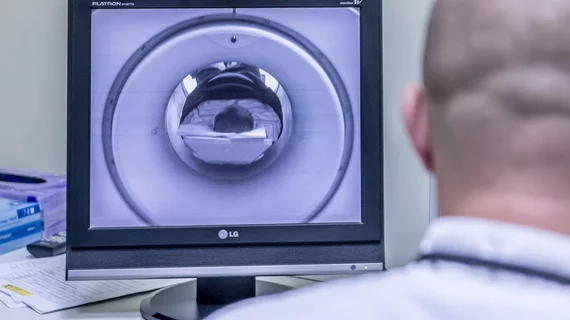Radiologist- and technologist-related errors to blame for most musculoskeletal MRI recalls
Although recall exams for musculoskeletal MRIs are uncommon, they frequently result in a significant change in final reports, especially when due to radiologist-related errors in protocols.
A new analysis published in Clinical Radiology took an in-depth look at what most often prompts the need for recalls of musculoskeletal MRI exams. After evaluating nearly 63,000 exams, experts were able to hone in on the three most common reasons for repeat scans—incorrect field of view (FOV), incorrect protocol and unexpected lesions.
According to the analysis, of the recalls that emerged as a result of radiologist-related errors in FOV or incorrect protocols, 42% resulted in a report that varied substantially from the initial reading. Experts involved in the study suggested that these errors are not just costly for a practice, but for patients as well when they result in a change in diagnosis and/or treatment.
“Recalls can be costly, as these examinations are often performed at no additional charge and can waste resources to reschedule, perform, and interpret a new examination; however, more importantly, recall examinations are inconvenient to the patient and referring providers, which can lead to frustration, poor satisfaction, and undermine confidence in the radiology personnel,” corresponding author J.S. Wu of Beth Israel Deaconess Medical Center in Boston and colleagues explained.
Although the experts’ data indicate that radiologist-related errors were more problematic in the long-term, they were not the leading cause of recalls—technologist-related errors were.
Tech-related errors, which were categorized as incorrect FOV, incorrect/incomplete protocol or poor-quality images, accounted for 35% of recalls. Unexpected lesions requiring additional sequences followed close behind, at 28%.
The authors suggested that the recalls they observed were likely due to a breakdown in the communication between radiologists, technologists and referring providers, either before or during exams. This could potentially be avoided by encouraging open communication and by each individual involved in the process having direct contact information that can be used to discuss questions and/or concerns in real-time, the authors advised.
The study abstract is available here.

